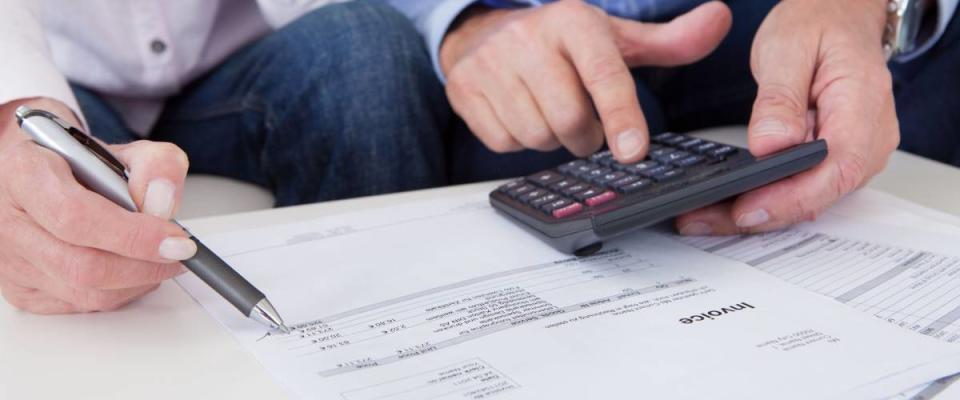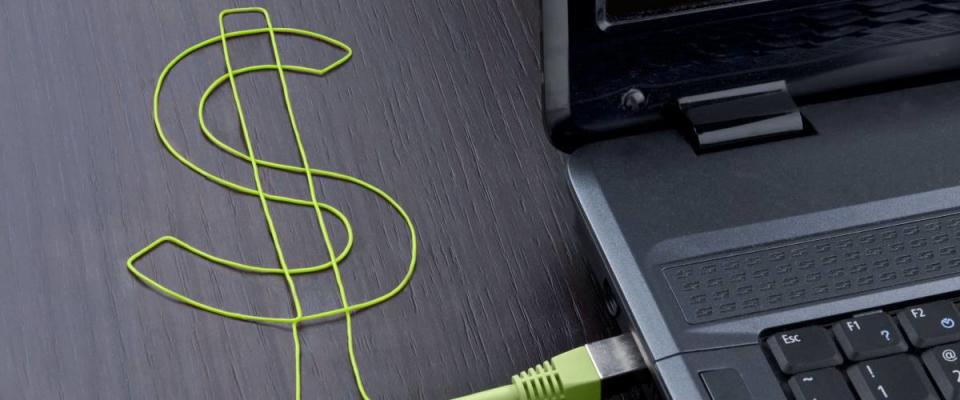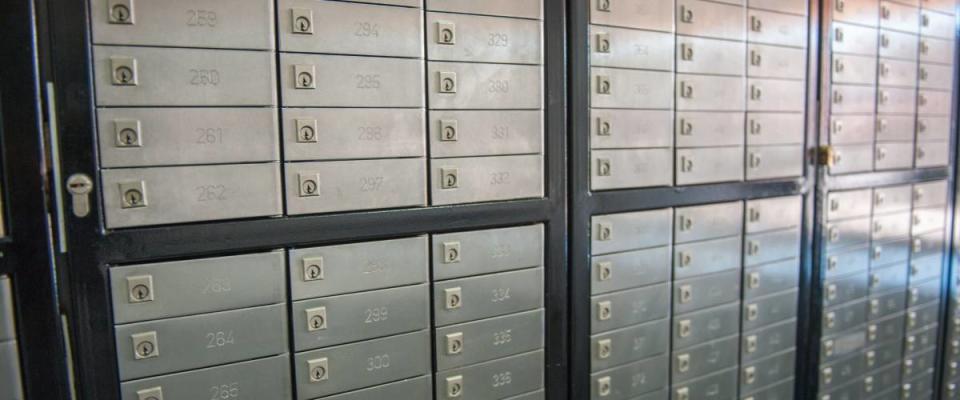Ready to Say Thank U, Next — to Your Bank? Here's How to Make a Smooth Switch

The idea of switching banks can seem a little overwhelming. But remember: You're the one with the power in this relationship.
You don't have to "just deal with" things like irritating fees, poor customer service or a lack of incentives. You can leave -- and find something better.
Taking your accounts to a new bank doesn't have to be a drawn-out hassle. All it takes is a little bit of research, planning and patience to cut ties with your old bank and start fresh with a new one that will treat you right.
Follow these nine simple steps to make the transition as seamless and stress-free as possible.
1. Open an account with your new bank

Visit your new bank, and open up an account!
Before you make any moves toward closing your existing checking or savings account (or both), go ahead and open an account with the new bank. Consider opening a high-yield checking account to earn a good return on your money.
Be sure to explore your new bank's perks and evaluate its credit card offerings, especially if you're relying on a card that's tied to your old bank.
Take some time to familiarize yourself with all of the features of the new bank, such as its online banking, overdraft protections, automatic payment scheduling and any recurring fees.
Keep in mind that it may take several business days for you to receive a debit card in the mail, so it's best not to move too much of your money over at once. Just start with the minimum deposit required for the new account.
2. Inform your old bank that you're leaving

Always inform your bank that you plan to switch institutions, even if it seems awkward or inconvenient to do so.
Many people think they don't need to formally close their old account, but this isn't the case.
Even if you transfer your balance and stop using the account, you can still incur fees. Always call and inform your bank that you plan to switch institutions, even if it feels awkward or inconvenient.
And who knows? Your old bank might offer a competitive deal in hopes of persuading you to stay.
At the very least, this conversation will help keep your accounts in order, and you might be instructed to complete some necessary paperwork to smooth the transition to your new bank.
3. Reroute your income

Change your bank information at work as soon as possible.
After you've opened your new accounts, you must make sure all of your income is rerouted correctly.
The process can take at least one or more pay cycles, so it's best to change bank information for any direct deposits as soon as possible.
Make sure that you cover all income sources, and include things like Social Security benefits, pensions, investments and annuities.
4. Review your transaction history

Take note of your transaction history, it will save you from fees.
This might sound like overkill, but one of the most effective ways to avoid late fees, overdrafts, missed payments and other financial mishaps is to take some time to review several months' worth of your banking transactions.
Make a comprehensive list of all bills, subscriptions, automatic drafts and important regular payments that will eventually need to be changed over to the new bank.
Once you have the list, you can more easily keep track of which expenses you've transferred and which are still coming out of the old account.
5. Stop automatic payments

Manually paying your bills to start helps you keep track of where your money is going during the transition.
If you can afford it, you can fund both accounts so that you're covered regardless of which account a bill comes out of. However, for most people, it's easiest to turn off automatic payments for everything until the switch is complete.
You have greater control over which account to pay a bill out of, and avoid any unwelcome surprises during the transition.
Once you've stopped all automatic payments, reinstate them with your new bank account as their respective bills become due. This prevents forgetting to schedule a bill, and saves you from possible overdrafts or late fees if something goes wrong during the switching process.
Don't forget to update your banking information for online payment systems like PayPal. Some take a few business days to verify new accounts, so be sure to factor in that potential wait time with any upcoming invoices or payments.
6. Transfer the bulk of your money

An electronic transfer is the cheapest way to move your money, outside of physical cash.
Once you have your bills and outstanding debts taken care of, you can safely transfer the majority of your funds, including your emergency funds, to your new bank. If you have investment accounts or a high-yield savings account, make sure you get these rolled over into equivalents at your new bank.
It's generally best to leave a small cushion in the old account in case there are transactions you've missed or forgotten about.
Depending on the banks you're transferring between, making an electronic payment is the cheapest option aside from physically taking the money to the new bank. However, if you want immediate access to your funds, a bank wire transfer or a service such as Zelle is the fastest method. A wire transfer typically incurs a fee, so keep that in mind when deciding how to proceed.
Make sure that you keep up with the minimum balance requirements of your old bank so that you don't accidentally trigger a penalty when you're transferring money out of your account.
7. Close your old account

Ask your bank for written confirmation of the closure.
Once you're confident that all of your outstanding bills, checks and debits have cleared, and your new accounts are fully functional, it's time to formally close the old ones.
You can do this by phone or by visiting a bank branch. If you're going in person, you may want to call ahead to find out which documents you'll need to close your accounts. Some banks also charge a fee, so be prepared for that as well.
Ask the bank to provide written confirmation of the closure.
The Consumer Finance Protection Bureau strongly recommends taking the extra step of getting written confirmation so there's a paper trail in case the account is ever reactivated for any reason.
8. Tie up any loose ends

You may want to think about renting a new safety deposit box.
Once you've handled all of the major steps to get your new accounts up and running, it's time to take a breath and pat yourself on the back!
Then, you can handle less pressing issues such as renting a safe deposit box at your new bank, ordering paper checks, downloading the mobile banking app or opening a new line of credit.
9. Be on guard for unexpected fees

Don't let your old bank pocket anymore of your money
Consumer banking experts warn that you should be on the lookout in case your old account turns into a "zombie account."
This is when a bank reopens an account without informing you, typically because of a check or payment coming through. The bank can then charge late fees, penalties and overdraft fees that will pile up without your knowledge.
Changing banks isn't a daunting task that you want to barrel through as quickly as possible. Understand that it will be a deliberate, methodical transfer that may take a few weeks.
But with the right checklist and a realistic outlook, you can switch bank accounts with no trouble at all.

